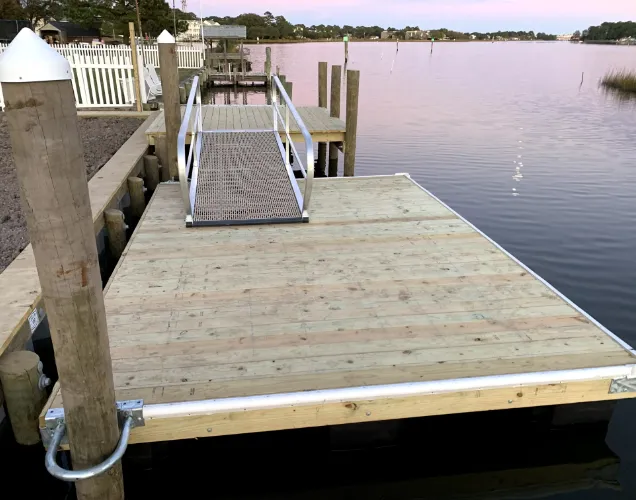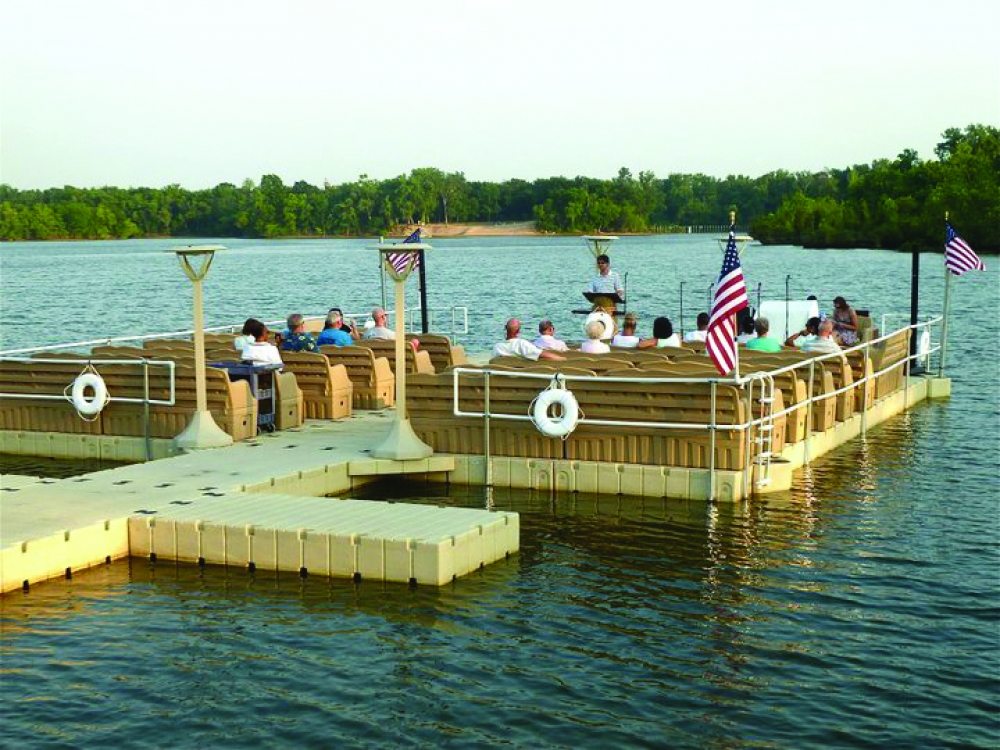Floating Docks: The Suitable Selection for Versatile Water Access
Floating docks present a compelling remedy for a selection of water gain access to needs, supplying versatility that goes beyond standard mooring options. The modular nature of floating docks helps with modification, providing to details demands.
Benefits of Floating Docks
Floating docks offer numerous benefits that improve water access for numerous applications. Their ability to fluctuate with altering water levels makes them specifically advantageous in settings with varying tides or seasonal variants. This adaptability makes certain that vessels can quickly moor without issue for the water's deepness, supplying a trusted system for leisure, industrial, and industrial uses.
Furthermore, floating docks are typically constructed from resilient products that stand up to corrosion, making them appropriate for lasting usage in marine atmospheres. Their installment is generally less intrusive than typical fixed docks, minimizing the ecological impact and assisting in quicker release (floating dock company). This flexibility enables less complicated moving or reconfiguration according to user needs or environmental modifications
Safety is one more key advantage; floating docks can offer steady gain access to for individuals boarding or getting off from watercrafts and reduce the risk of crashes related to unpredictable surfaces. They can be designed to suit a range of accessories, such as cleats and fenders, improving capability. Overall, floating docks stand for an effective solution for boosting water access across varied fields while advertising security and environmental sustainability.

Types of Floating Docks
Various kinds of floating docks provide to different requirements and environments, each designed with details attributes to maximize performance. One of the most typical kinds include modular docks, which include interlacing sections that allow for simple personalization and development. These docks are perfect for entertainment usage, as they can be customized to fit various boat sizes and water conditions.
Another preferred choice is the fixed floating dock, which continues to be secured in location yet floats with altering water levels. floating dock services. This type is specifically suited for locations with minimal tidal changes, providing steady access for angling or swimming. Furthermore, there are drive-on docks, which include a sloped style that allows boats to quickly drive on and off, making them ideal for personal watercraft and smaller sized vessels
For business applications, sturdy floating docks are readily available, constructed from strengthened materials to withstand considerable tons and harsh marine settings. Last but not least, eco-friendly floating docks utilize sustainable products and designs to minimize environmental effect, often integrating features like plants to sustain neighborhood wildlife. Recognizing the different kinds of floating docks makes sure that users can choose the most appropriate option for their certain needs.
Installment Refine Introduction
A successful installation of floating docks calls for careful planning and focus to information to guarantee optimal efficiency and safety and security. The first step entails analyzing the site problems, consisting of water depth, existing, and prospective obstacles. This assessment educates the selection of the ideal dock products and style tailored to the particular atmosphere.
Next, obtaining essential permits is essential, as numerous territories have laws relating to construction on water bodies. When permissions are secured, the setup can continue. Begin by preparing the foundation, which may involve anchoring systems or pilings customized to the dock type and neighborhood conditions.
Adhering to the structure arrangement, construct the dock sections according to maker specs. Make certain that all components are securely secured and aligned to withstand ecological stress and anxieties. visit here Position the dock in the marked area, guaranteeing it is level and secure.

Upkeep Tips and Ideal Practices
After the setup procedure is full, recurring maintenance plays a crucial function in guaranteeing the longevity and performance of floating docks. Regular assessments should be carried out to identify any type of indications of wear, damage, or damages - floating dock company. Check for any type of loosened installations, cracks, or splitting up in the dock areas, as these can endanger architectural integrity
Cleaning up the dock is necessary to eliminate debris, algae, and other accumulation that can influence its look and safety. Make use of a gentle pressure wash regularly to keep cleanliness without creating damage to the surface. Furthermore, applying a safety sealant every few years can assist enhance long life and stand up to ecological wear.
Take notice of the mooring lines and supports, ensuring they are free and protected from deterioration. Replace any kind of abject parts immediately to prevent threats. Seasonal changes may also be required; throughout extreme climate condition, rearranging or enhancing the dock can protect additional hints against damages.
Applications for Floating Docks
Floating docks serve a wide variety of applications, catering to both recreational and business needs. In leisure setups, they supply smooth accessibility to rivers for tasks such as boating, angling, and swimming. Their flexible nature allows for installment in differing water levels, guaranteeing safe and stable gain access to despite tidal fluctuations.
Readily, floating docks are essential for marinas and waterside organizations. They assist in the docking of vessels, allowing effective unloading and filling of goods. Their modular design permits simple development or reconfiguration to accommodate changing organization needs, making them suitable for boat rentals, trip operations, or angling charters.
In addition, floating docks are made use of in ecological applications such as marine research and habitat restoration. They can act as platforms for scientific researches, keeping track of water quality, or conducting wild animals studies without disturbing sensitive ecosystems.
In industrial contexts, floating docks are employed in construction tasks, providing accessibility to hard-to-reach areas for equipment and personnel. Their convenience, durability, and marginal effect on the environment make them an optimum selection for a large range of applications, boosting both performance and ease of access in various water-based settings.
Final Thought
Finally, floating docks stand for an optimum option for diverse water her explanation gain access to needs, owing to their versatility, sturdiness, and modular layout. These structures facilitate risk-free mooring for various applications while decreasing environmental influence during setup. The reduced maintenance needs even more enhance their functionality. Floating docks serve as a beneficial possession for entertainment, commercial, and environmental jobs, making certain dependable accessibility to rivers and advertising sustainable methods in water atmospheres.
Floating docks existing an engaging remedy for a selection of water accessibility requires, offering flexibility that transcends conventional mooring options.Floating docks deal many benefits that enhance water accessibility for numerous applications. On the whole, floating docks represent an effective solution for boosting water access across varied fields while advertising security and environmental sustainability.
Another preferred alternative is the fixed floating dock, which remains anchored in place yet drifts with altering water levels.In verdict, floating docks stand for an optimal solution for varied water gain access to needs, owing to their flexibility, longevity, and modular layout.